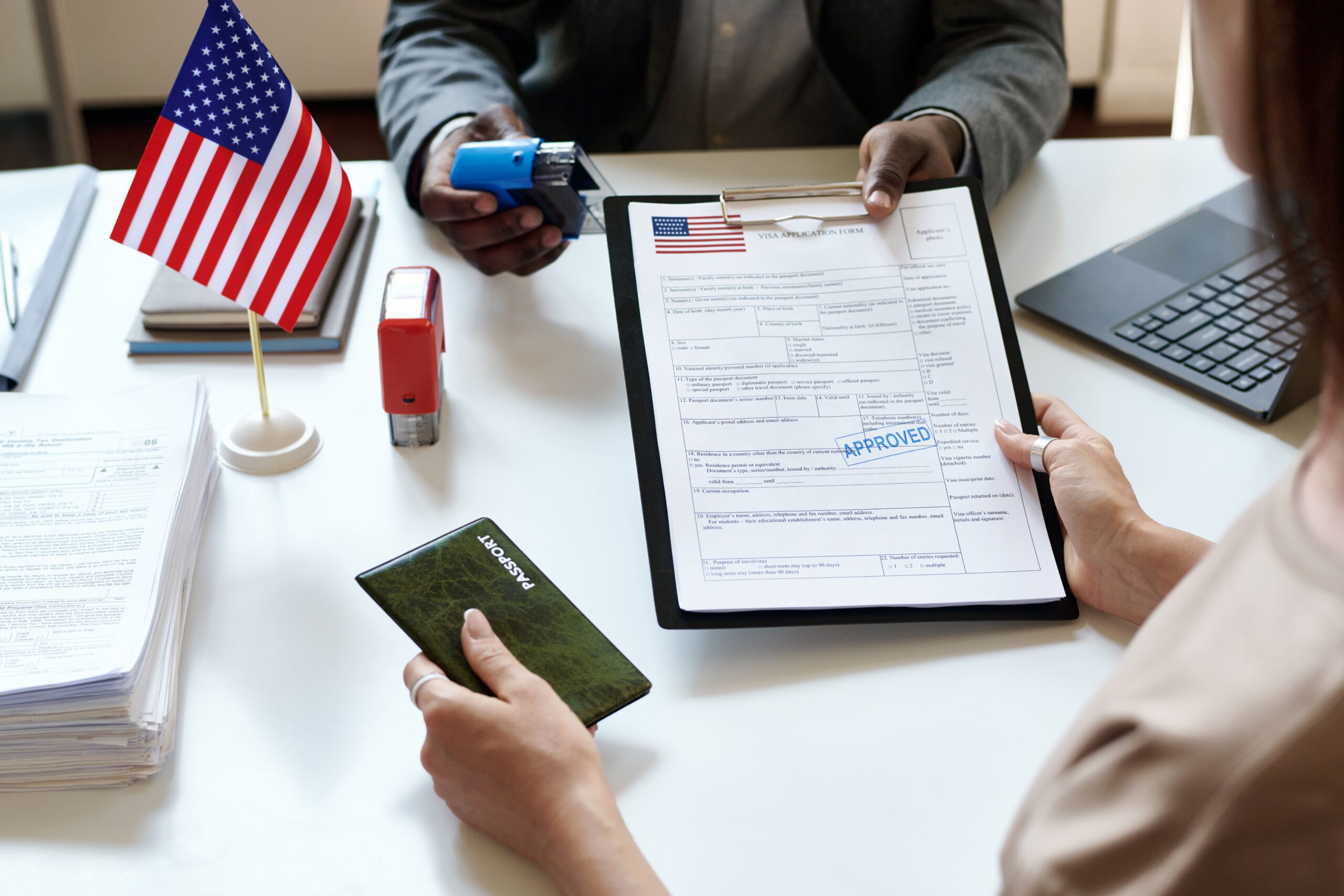The U.S. Department of State (DOS) has recently circulated a cable outlining stricter criteria for visa applicants, especially focusing on F, M, and J student visas. These new guidelines, which include enhanced social media vetting, may lead to the denial or revocation of visas for many international students. The policy mirrors previous executive orders, signaling a tough stance on national security.
Key Takeaways
- New guidelines require consular officers to use social media screening for student visa applicants.
- Social media vetting targets those linked to terrorist organizations or who have previously violated visa conditions.
- The policy allows for visa denials or revocations based on 214(b) grounds and potential terrorist activity.
- Attorneys must be prepared to assist clients facing visa issues due to these changes.
- Secretary of State Marco Rubio claims over 300 visas have been revoked under the new policy.
Context
The cable in question aligns with the broader push for national security, a theme central to several past policies under the Trump administration, including Executive Orders 14161 and 14188. These executive orders expanded scrutiny on visa applicants from countries deemed threats to U.S. security. The DOS’s new directives appear to build on these earlier efforts by incorporating enhanced digital surveillance into the screening process, particularly for students.
The New Screening and Social Media Vetting Guidelines
The latest cable emphasizes heightened security measures, directing consular officers to scrutinize social media profiles of certain visa applicants. Those applicants suspected of being linked to terrorist organizations or those with a history of violating visa conditions could face delays or denials. For many students, this could mean an intense review of their online presence before being granted entry into the U.S.
The U.S. government is intensifying its visa screening process, including reviewing social media activity, to prevent unlawful activities and ensure applicants’ intent aligns with their visa purpose.
Grounds for Denial or Revocation of Visas
Under the new guidelines, consular officers have the authority to deny visas based on 214(b) if applicants cannot demonstrate their intentions are solely academic. Further, any evidence of advocating for terrorist activities or displaying hostility toward U.S. culture could also trigger revocation.
Denials or revocations of student visas may occur if applicants cannot prove their purpose is strictly academic or if they exhibit behaviors that raise national security concerns.
Social Media Screening – A New Era of Digital Surveillance
The cable mandates consular officers to take screenshots of applicants’ social media profiles. If an applicant’s online presence raises suspicion, it may be used as evidence for denying a visa application. This social media review may significantly impact visa applicants who have expressed controversial views or previously interacted with entities under U.S. sanction.
Social media screening introduces a new layer of scrutiny, potentially making it more difficult for applicants with controversial or suspicious online activity to obtain visas.
Impact on International Students and U.S. Universities
The enhanced scrutiny on student visa applicants is likely to have broader consequences for U.S. universities. International students may be deterred from applying due to fears of denied visas or revocations. This shift in policy could lead to a decrease in the number of international students, potentially affecting campus diversity and funding from international tuition fees.
Stricter visa guidelines may discourage international students from applying to U.S. universities, potentially impacting the academic environment and university finances.
Legal Aid and the Role of Immigration Attorneys
For immigration attorneys, these new guidelines present a unique challenge. Clients with social media histories or prior visa violations will need expert guidance to manage these regulations. Attorneys will play a crucial role in advising applicants on how to protect their online profiles and ensure their visa applications meet all requirements.
Immigration attorneys are crucial in helping applicants manage their online presence and prepare for the new social media vetting process, which could lead to visa denials or revocations.
The new Department of State cable signals a shift toward more stringent visa screening, especially for international students. With social media vetting at the forefront, consular officers have greater power to deny or revoke visas based on a broader set of criteria. Immigration attorneys will be essential in guiding clients through these new challenges, helping them protect their visa eligibility and prepare for the heightened scrutiny that lies ahead.
Frequently Asked Questions
What are the new criteria for student visa applicants?
The new guidelines include social media screening and a review of whether applicants’ intentions align with their visa type, such as F, M, or J visas.
What can lead to a student visa denial under the new guidelines?
Denials may occur if an applicant’s social media activity suggests involvement with terrorist organizations or activities inconsistent with their visa’s purpose.
How does social media screening affect student visa applications?
Consular officers may use social media activity to evaluate whether applicants are engaging in unlawful activities, potentially leading to visa denial or revocation.
Can an applicant’s visa be revoked based on their social media posts?
Yes, if the posts suggest support for terrorism or hostility toward U.S. culture, it could be grounds for visa revocation.
How should immigration attorneys assist clients under these new guidelines?
Attorneys should advise clients on managing their online profiles and ensure that all activities and statements are consistent with their visa application.
What impact will these new guidelines have on U.S. universities?
The stricter vetting process may discourage international students from applying, potentially affecting U.S. universities’ diversity and financial stability.
Authors: Jonathan Wasden & Justin Rivera, Immigration Attorneys
How useful was this post?
Click on a star to rate it!









